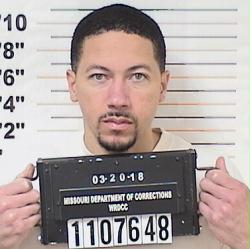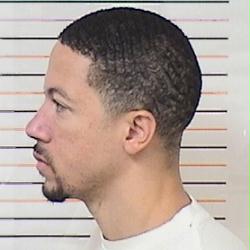Please E-mail suggested additions, comments and/or corrections to Kent@MoreLaw.Com.
Help support the publication of case reports on MoreLaw
Date: 08-03-2018
Case Style:
STATE OF MISSOURI v. VICTOR D. VICKERS, JR.

|

|
Case Number: WD80148
Judge: Karen King Mitchell
Court: MISSOURI COURT OF APPEALS WESTERN DISTRICT
Plaintiff's Attorney: Joshua D. Hawley, Attorney General, and Richard A. Starnes, Assistant Attorney General
Defendant's Attorney: Amy M. Bartholow, Assistant Public Defender
Description: The determination of whether there has been a violation of speedy trial rights involves a balancing process. In determining whether the right to speedy trial has been violated, the Court is to consider and balance all of the circumstances and to weigh four factors: Length of delay, the reason for the delay, the defendantís assertion of his right, and prejudice to the defendant.
2. Different weights are assigned to different reasons for a delay. A deliberate attempt to delay the trial in order to hamper the defense should be weighted heavily against the government. A more neutral reason such as negligence or overcrowded courts should be weighted less heavily but nevertheless should be considered since the ultimate responsibility for such circumstances must rest with the government rather than with the defendant. Finally, a valid reason, such as a missing witness, should serve to justify appropriate delay. On the other hand, delays attributable to the defendant weigh heavily against the defendant. A reviewing court is to give considerable deference to any trial court findings regarding either negligence or bad faith on the part of the State.
3. Because of Vickersís complicity in the twenty-one-month delay between the Stateís dismissal of charges in September 2013 and its reindictment of Vickers in June 2015, that delay cannot establish a speedy-trial violation.
4. Delay resulting from the Stateís performance of DNA analysis, when not done in bad faith, is weighed against the State but not heavily.
5. Delay from joint requests for continuances are neutral to a speedy-trial analysis.
6. Waiting several months to assert the right to a speedy trial has been found to weigh against a defendant. Although a defendant has no duty to bring himself to trial, failure to assert the right will make it difficult for a defendant to prove that he was denied a speedy trial.
7. There are three considerations in determining whether a delay has prejudiced the defendant: (1) prevention of oppressive pretrial incarceration; (2) minimization of anxiety and concern of the accused; and (3) limitation of the possibility that the defense will be impaired. Courts regard the third consideration as the most serious.
8. Here, although there was an extended delay, much of it was attributable to joint efforts by the State and Vickers to both investigate this matter and resolve his federal case. Vickers did not assert his right to a speedy trial until one week before the trial was scheduled, and, at that time, he sought only dismissal of the charges and continued to seek additional delay. Finally, he has failed to demonstrate prejudice resulting from the numerous delays in which he acquiesced. Accordingly, he has failed to prove a violation of his right to speedy trial.
9. Rule 25.05(A)(2) requires a defendant in discovery to disclose any witnesses he intends to call to testify. Rule 25.18 offers sanctions for failure to comply with discovery rules, and exclusion of a witness is one such sanction. Exclusion may be proper when there is no reasonable justification for failure to disclose the witness.
10. As a matter of law, no abuse of discretion exists when the court refuses to allow the late endorsement of a defense witness whose testimony would have been cumulative or collateral, or if the late endorsement would have unfairly surprised the State.
11. Vickersís request to endorse an alibi witness clearly took the State by surprise and would have resulted in fundamental unfairness to the State. Exclusion of proposed alibi witnesses is proper where no reasonable justification is given for late endorsement. Here, Vickers provided no reasonable justification for the late endorsement, and it is inconceivable that the alibi witness was undiscovered the nearly five years prior to the first day of the trial.
12. To convict a defendant of first-degree murder on a theory of accomplice liability, the State must prove that the accomplice deliberated upon the murder; the element of deliberation cannot be imputed. Deliberation means cool reflection upon the victimís death for some amount of time, no matter how short. A submissible case of accomplice liability for first-degree murder exists where there is some evidence that the accomplice made a
decision to kill the victim prior to the murder from which the jury could infer that the accomplice coolly deliberated on the victimís death.
13. Here, the evidence supported a determination that Vickers deliberated on the victimís death in multiple ways. First, Vickers brought a gun with him to the home. Second, when Vickers and the third individual were unable to find whatever they were seeking, Briggs said, ďJust do it,Ē after which both victims were shot, suggesting that the plan had been to kill any witnesses upon completion of the search. Third, the deceased was shot seven times, and there was apparently a brief pause in the middle of those shots. Finally, Briggs, Vickers, and the third man all fled the scene without procuring any aid for either victim, both of whom had suffered serious gunshot wounds.
14. Rule 29.11(b) provides that, in a criminal case, a motion for new trial must be filed not later than fifteen days after the verdict is returned, and for good cause shown, the court may extend the time for filing by one additional period not to exceed ten days. The time limitations in Rule 29.11(b) for filing a motion for new trial in criminal cases are mandatory. A motion for new trial may not be filed or amended to allege, as a basis for a new trial, the existence of newly discovered evidence which was not discoverable until after the filing deadline had passed. Accordingly, an untimely motion for new trial is not an appropriate means to introduce new evidence, preserves nothing for appeal, and is a procedural nullity.
15. Generally, alleged Brady violations arising after the time in which a motion for new trial must be filed are more appropriately addressed in the context of a habeas corpus motion in which the prosecutionís serious alleged violation of Brady can be explored. Nevertheless, Missouriís appellate courts have considered Brady claims raised through other avenues but only when the appellate court had a proper record to consider or where the facts were uncontroverted.
16. The Constitution is not violated every time the government fails or chooses not to disclose evidence that might prove helpful to the defense. Simply showing that the prosecution knew of an item of favorable evidence unknown to the defense does not amount to a Brady violation, without more. The undisclosed evidence must be material to the case before any relief is warranted. Materiality is a question of whether we can be confident that the juryís verdict would have been the same, had the State disclosed the favorable evidence.
17. Vickers failed to establish materiality of the alleged newly discovered evidence and, thus, was not entitled to a new trial because of it.
18. As a general rule, evidence of prior uncharged misconduct is inadmissible for the purpose of showing the propensity of the defendant to commit such crimes.
19. Missouri courts have generally examined five factors in determining the prejudicial effect of an uninvited reference to other crimes. These five factors are: (1) Whether the statement was, in fact, voluntary and unresponsive to the prosecutorís questioning or caused by the prosecutor; (2) whether the statement was singular and isolated, and whether it was
emphasized or magnified by the prosecution; (3) whether the remarks were vague and indefinite, or whether they made specific reference to crimes committed by the accused; (4) whether the court promptly sustained defense counselís objection to the statement, and instructed the jury to disregard the volunteered statement; and (5) whether, in view of the other evidence presented and the strength of the Stateís case, it appeared that the comment played a decisive role in the determination of guilt.
Outcome: Here, the uninvited reference to Vickers by a State witness as ďa wanna-be rapper that was into drugsĒ did not warrant a mistrial because the reference was brief, isolated, and unlikely to have affected the verdict.
AFFIRMED
Plaintiff's Experts:
Defendant's Experts:
Comments:
Find a Lawyer
Find a Case
